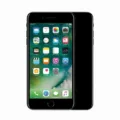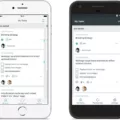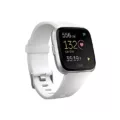IPhones have always been regarded as one of the most secure smartphones available in the market. However, this does not mean that they are immune to viruses and malware. While iPhone viruses are rare, they do exist, and it’s important to know how to protect your device from potential threats.
One of the most common ways that iPhones can become vulnerable to viruses is through jailbreaking. Jailbreaking your iPhone is a process that removes the limitations set by Apple, which allows you to install apps that are not available in the App Store. However, this also means that you are bypassing Apple’s security measures, leaving your device open to potential threats.
Another way that iPhones can become infected with viruses is through malicious websites. Just like any other browser, Safari can be a gateway for malicious programs and viruses. It’s important to be cautious when browsing the internet and to avoid clicking on links or ads on websites that you don’t trust.
To check if your iPhone has been infected with malware, there are a few things you can look out for. Firstly, check for any unfamiliar apps that have been installed on your device. If you haven’t installed them yourself, it’s possible that they may have been installed by a virus.
You should also keep an eye on your data usage and power consumption. If you notice that your data usage has increased significantly or that your battery life is draining faster than usual, it could be a sign that your device has been infected.
Pop-up ads can also be a sign that your iPhone has been infected with malware. If you notice an increase in the number of pop-up ads appearing on your device, it’s possible that you have unwittingly clicked on a malicious link or advertisement.
It’s always a good idea to scan your iPhone using antivirus software. There are numerous antivirus apps available in the App Store that can help to detect and remove viruses from your device.
While iPhone viruses are rare, they do exist, and it’s important to take steps to protect your device from potential threats. Be cautious when browsing the internet, avoid jailbreaking your device, and keep an eye out for any signs of malware. By taking these simple steps, you can help to keep your iPhone safe and secure.

Can An iPhone Get A Virus From A Website?
It is possible for an iPhone to get infected by a virus from a website. Although Safari is generally considered a secure browser, it can still be vulnerable to malicious software and viruses. These viruses can be downloaded onto your iPhone when you click on links or ads on untrusted websites.
To avoid getting viruses on your iPhone, it’s important to exercise caution when browsing the internet. Be wary of clicking on links or ads from websites that you don’t trust. Additionally, you should always keep your iPhone’s software updated to ensure that it has the latest security patches. If you suspect that your iPhone has been infected with a virus, you should immediately run a virus scan and remove any infected files.
Can An iPhone Actually Get A Virus?
An iPhone can get a virus, although it is extremely rare. The likelihood of getting a virus on an iPhone is much lower than on a PC or Android device due to the fact that Apple’s iOS operating system is generally considered to be more secure and less vulnerable to cyber attacks. However, it is important to note that any device can be vulnerable to viruses if it is not properly protected.
One of the ways that an iPhone can become vulnerable to viruses is through a process called ‘jailbreaking’. Jailbreaking an iPhone involves removing the limitations that Apple has placed on the device’s operating system in order to install apps and make other customizations that are not approved by Apple. While jailbreaking can offer users more flexibility and control over their devices, it also opens the door to potential security risks, including the possibility of downloading and installing malicious software.
To protect your iPhone against viruses, it is important to keep your device updated with the latest security patches and updates from Apple, avoid jailbreaking your device, and only download apps from trusted sources such as the Apple App Store. Additionally, you can install a reputable antivirus app for added protection. While the risk of getting a virus on an iPhone is low, it is still important to take steps to safeguard your device and personal information.
How Do I Check My iPhone For Malware?
To check your iPhone for malware, there are a few things you can do. First, look for any unfamiliar apps on your phone. If you don’t recognize an app, it’s possible that it could be malware. Additionally, check your data usage to see if there is a significant increase in data consumption, which could also indicate malware. Another way to check for malware is to monitor your phone’s power consumption. If your battery is draining more quickly than usual, it could be a sign that there is malware on your phone. You should also keep an eye out for pop-up ads that appear on your phone, as these can sometimes be a symptom of malware. Finally, it’s always a good idea to scan your phone using antivirus software to detect any malware that may be present. By taking these steps, you can help ensure that your iPhone is free of malware and functioning properly.
Conclusion
To sum up, while it is rare for iPhones to get viruses, it is not impossible. Safari, just like any other browser, can be a gateway for malicious programs and viruses. Therefore, it is important to be cautious and avoid clicking on suspicious links and ads on websites that you don’t trust. Additionally, if your iPhone is jailbroken, it becomes even more vulnerable to viruses. To check if your iPhone has been infected with malware, you can look for unfamiliar apps, check your data usage and power consumption, keep an eye on pop-up ads, and scan your phone using antivirus software. By taking these precautions, you can minimize the risk of your iPhone being infected with a virus and keep your personal information and data safe.








